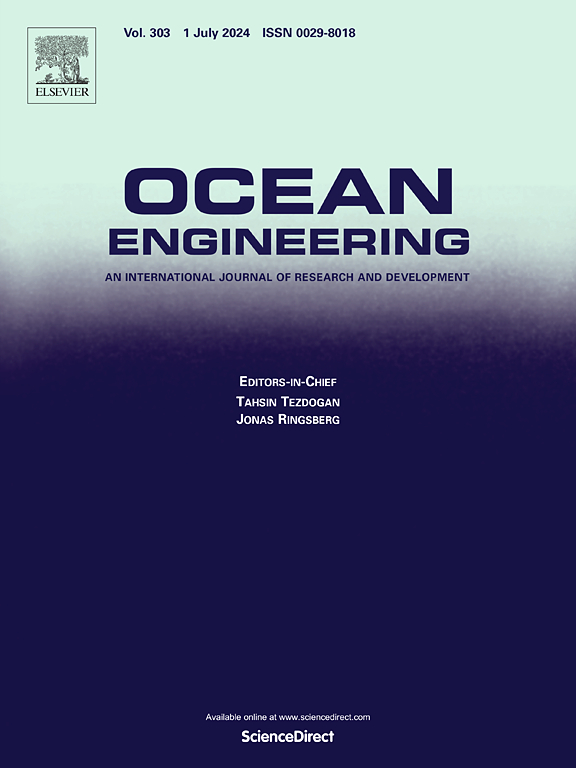具有死区输入和不确定控制系数的舵角约束非线性船舶系统自适应航向保持控制
IF 5.5
2区 工程技术
Q1 ENGINEERING, CIVIL
引用次数: 0
摘要
针对船舶航行条件的复杂性和不确定性以及航向保持过程中存在舵角约束和死区输入等问题,提出了一种基于Nussbaum函数和barrier Lyapunov函数(BLF)的自适应航向保持控制算法。首先,将Nussbaum函数引入到控制方案中,解决了控制系数方向不确定的问题,从而避免了控制器的奇异性问题。随后,利用BLF对舵角进行约束,降低舵机的转向频率和能耗,使控制动作更符合船员的操作习惯。同时,采用径向基函数神经网络(RBF nn)逼近不确定参数,采用动态面控制(DSC)简化计算过程,降低控制器复杂度。然后,通过严密的数学证明,在所提出的控制算法下,所有系统信号都是半全局最终一致有界的,并且舵角约束保持在预定义的紧集中。最后,通过仿真实例验证了该方案的有效性。本文章由计算机程序翻译,如有差异,请以英文原文为准。
Adaptive course keeping control for rudder angle constraint nonlinear ship systems with dead-zone input and uncertain control coefficients
This paper proposes an adaptive course keeping control algorithm based on Nussbaum functions and barrier Lyapunov function (BLF), targeting the complexity and uncertainty of ship navigation conditions and rudder angle constraints and dead-zone input existing in the course keeping process. Initially, the Nussbaum functions are incorporated into the control scheme to address the issue of direction-uncertain control coefficients, thereby avoiding the singularity problem of the controller. Subsequently, a BLF is utilized to constrain the rudder angle, reducing the steering frequency and energy consumption of the steering gear and making the control actions more consistent with the operational habits of the crew. Meanwhile, the radical basis function neural networks (RBF NNs) are employed to approximate uncertain parameters, while the dynamic surface control (DSC) is applied to simplify the computation process and reduce controller complexity. Then, rigorous mathematical proofs demonstrate that all system signals are semi-globally ultimately uniformly bounded (SGUUB) under the proposed control algorithm and the rudder angle constraints are maintained within a predefined compact set. Finally, simulation examples validate the effectiveness of the proposed scheme.
求助全文
通过发布文献求助,成功后即可免费获取论文全文。
去求助
来源期刊

Ocean Engineering
工程技术-工程:大洋
CiteScore
7.30
自引率
34.00%
发文量
2379
审稿时长
8.1 months
期刊介绍:
Ocean Engineering provides a medium for the publication of original research and development work in the field of ocean engineering. Ocean Engineering seeks papers in the following topics.
 求助内容:
求助内容: 应助结果提醒方式:
应助结果提醒方式:


